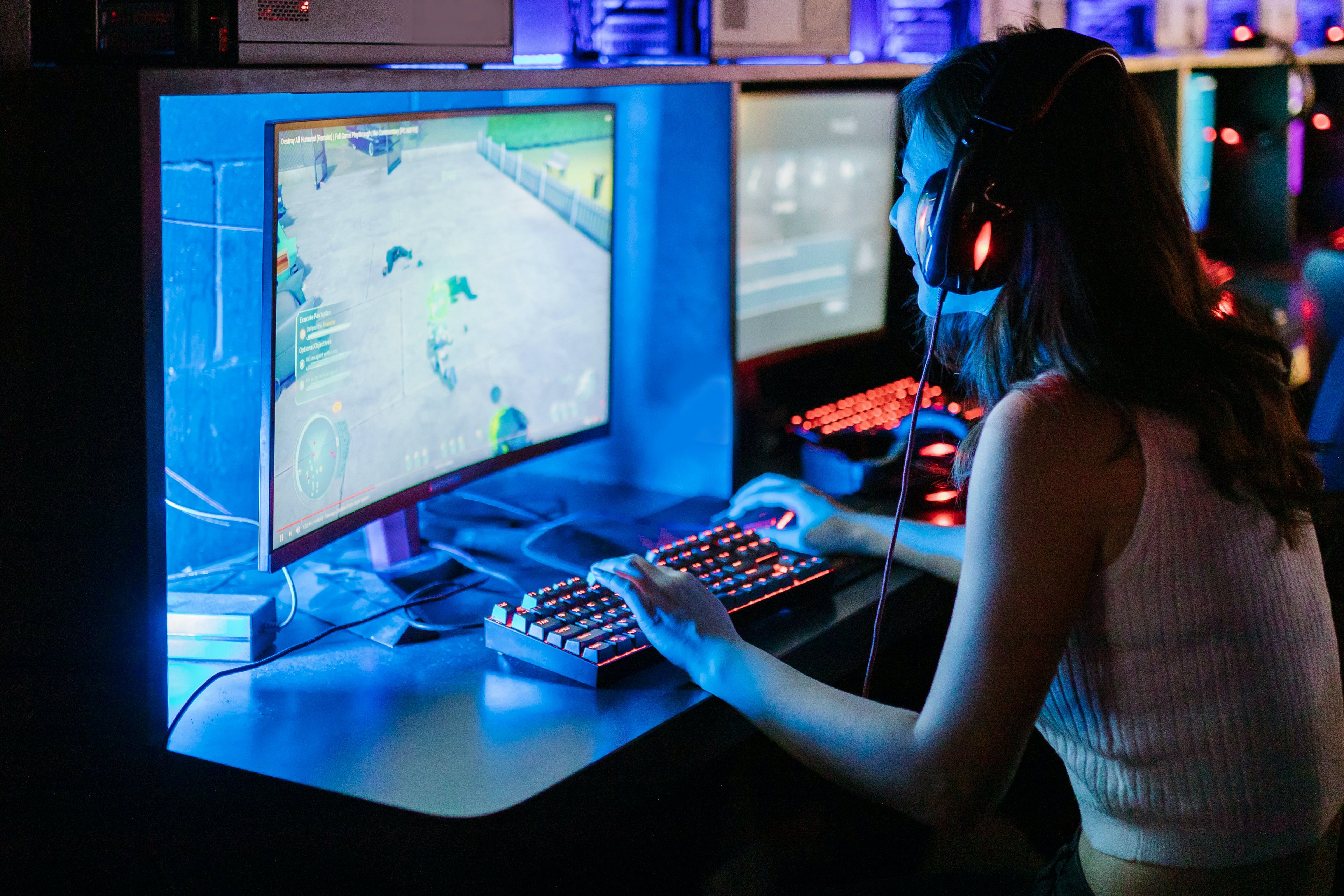Improving Sleep Quality: Strategies to minimize blue light exposure before bedtime
In today’s digital age, screens are everywhere, and their blue light can mess with your sleep. But don’t worry; there are simple ways to reduce blue light exposure before bedtime to help you sleep better.
Understanding Blue Light and Its Impact on Sleep
Blue light is a high-energy visible light emitted by screens and LED lighting. While it keeps you alert during the day, too much exposure at night can disrupt your sleep. This happens because blue light interferes with melatonin production, the hormone that regulates sleep. When melatonin levels drop, falling asleep becomes harder.

Establish a Digital Curfew
One effective strategy is to set a digital curfew. This means turning off electronic devices like smartphones, tablets, and computers at least one to two hours before bedtime. By doing this, you allow your body to produce melatonin naturally, helping you fall asleep more easily. If avoiding screens isn’t possible, consider using blue light filters or night mode settings on your devices to reduce blue light emission.
Create a Relaxing Pre-Sleep Routine
Instead of scrolling through your phone or watching TV before bed, engage in relaxing activities that don’t involve screens. Reading a physical book, practicing gentle yoga, or taking a warm bath can signal to your body that it’s time to wind down. These activities promote relaxation and prepare you for restful sleep.
Optimize Your Sleep Environment
Your bedroom environment plays a crucial role in sleep quality. Ensure your sleeping area is dark by using blackout curtains or an eye mask to block external light. If you need a nightlight, opt for one with a red or orange hue, as these colors are less likely to interfere with melatonin production compared to blue light.
Consider Blue Light Blocking Glasses
For those who can’t avoid screen time before bed, blue light blocking glasses can be beneficial. These glasses filter out blue light, reducing its impact on your sleep cycle. Wearing them in the evening can help maintain melatonin levels, making it easier to fall asleep.
Maintain Consistent Sleep and Wake Times
Keeping a regular sleep schedule reinforces your body’s natural sleep-wake cycle. Going to bed and waking up at the same time every day, even on weekends, can improve sleep quality. Consistency helps regulate your internal clock, making it easier to fall asleep and wake up refreshed.
Limit Caffeine and Heavy Meals Before Bed
What you consume in the hours leading up to bedtime can affect your sleep. Avoid caffeine and large meals at least a few hours before going to bed. Caffeine can keep you awake, and heavy meals can cause discomfort, both of which can disrupt sleep.
Engage in Regular Physical Activity
Regular exercise can help you fall asleep faster and enjoy deeper sleep. However, try to finish exercising at least a few hours before bedtime, as working out too close to bedtime can interfere with sleep.
Manage Stress and Anxiety
Stress and anxiety can keep your mind active at night, making it difficult to fall asleep. Practicing relaxation techniques like deep breathing, meditation, or progressive muscle relaxation before bed can calm your mind and prepare you for sleep.
Seek Professional Advice if Necessary
If you’ve tried these strategies and still have trouble sleeping, consider consulting a healthcare professional. They can provide personalized advice and identify any underlying issues that may be affecting your sleep.
By incorporating these strategies into your daily routine, you can minimize blue light exposure before bedtime and improve your sleep quality. Remember, good sleep is essential for overall health and well-being, so it’s worth making these small changes to ensure you get the rest you need.
The Science of Blue Light: Examine how screen exposure impacts sleep cycles
In today’s digital world, screens are everywhere, and their blue light can mess with your sleep. But don’t worry; understanding how blue light affects your sleep cycles can help you take steps to improve your rest.
What Is Blue Light?
Blue light is a type of high-energy visible light emitted by screens and LED lighting. During the day, it keeps you alert and awake. However, exposure to blue light at night can disrupt your sleep patterns.

How Blue Light Affects Sleep
Your body has a natural sleep-wake cycle, known as the circadian rhythm, regulated by the hormone melatonin. Exposure to blue light in the evening suppresses melatonin production, making it harder to fall asleep. This disruption can lead to sleep disturbances and mood changes.
The Role of Screens in Blue Light Exposure
Devices like smartphones, tablets, and computers emit blue light. Using these devices before bedtime can trick your brain into thinking it’s still daytime, delaying sleep onset and reducing sleep quality.
Strategies to Minimize Blue Light Exposure Before Bedtime
To improve your sleep quality, consider the following strategies:
- Set a Digital Curfew: Turn off electronic devices at least one to two hours before bedtime to allow melatonin levels to rise.
- Use Blue Light Filters: Enable night mode settings on your devices to reduce blue light emission.
- Wear Blue Light Blocking Glasses: These glasses can filter out blue light, helping maintain your sleep cycle.
- Create a Relaxing Pre-Sleep Routine: Engage in activities like reading a physical book or taking a warm bath to signal to your body that it’s time to wind down.
- Optimize Your Sleep Environment: Ensure your bedroom is dark and cool to promote better sleep.
By understanding the science of blue light and implementing these strategies, you can improve your sleep quality and overall well-being.
Role of Blue Light Glasses: How eyewear can help maintain healthy sleep patterns
In our tech-driven world, screens are everywhere, and their blue light can mess with your sleep. But don’t worry; blue light blocking glasses can help you maintain healthy sleep patterns.
Understanding Blue Light and Sleep
Blue light is a high-energy visible light emitted by screens and LED lighting. While it keeps you alert during the day, too much exposure at night can disrupt your sleep. This happens because blue light interferes with melatonin production, the hormone that regulates sleep. When melatonin levels drop, falling asleep becomes harder.
How Blue Light Blocking Glasses Work
Blue light blocking glasses are designed to filter out the blue light emitted from screens. By wearing them in the evening, you can reduce blue light exposure, allowing your body to produce melatonin naturally. This helps maintain your sleep-wake cycle, making it easier to fall asleep at night.

Benefits of Using Blue Light Blocking Glasses
- Improved Sleep Quality: By reducing blue light exposure before bedtime, these glasses help regulate melatonin levels, leading to better sleep.
- Reduced Eye Strain: They can alleviate discomfort caused by prolonged screen time, making evening screen use more comfortable.
- Enhanced Focus: With less eye strain, you can maintain concentration during late-night work or gaming sessions.
Incorporating Blue Light Blocking Glasses into Your Routine
To get the most benefit, start wearing blue light blocking glasses a couple of hours before bedtime. This practice can help signal to your body that it’s time to wind down, promoting a smoother transition to sleep.
Additional Tips for Better Sleep
- Set a Digital Curfew: Try to turn off electronic devices at least one to two hours before bed to minimize blue light exposure.
- Use Night Mode Settings: Many devices have settings that reduce blue light emission; enabling these can be helpful.
- Create a Relaxing Pre-Sleep Routine: Engage in activities like reading a physical book or taking a warm bath to signal to your body that it’s time to wind down.
By combining these habits with the use of blue light blocking glasses, you can support your body’s natural sleep rhythms and enjoy more restful nights.
Choosing the Right Blue Light Blocking Glasses
When selecting a pair, look for glasses that block a high percentage of blue light and are comfortable to wear. Some options are designed specifically for nighttime use, offering maximum protection to support sleep.
Final Thoughts
Incorporating blue light blocking glasses into your evening routine can be a simple yet effective way to maintain healthy sleep patterns in our screen-filled world. By reducing blue light exposure before bed, you allow your body to produce melatonin naturally, helping you fall asleep more easily and enjoy better quality rest.
Remember, while these glasses can be helpful, they’re most effective when combined with good sleep hygiene practices. So, consider setting a digital curfew, creating a relaxing pre-sleep routine, and making your sleep environment as comfortable as possible.
Creating a Sleep-Friendly Gaming Schedule: Balancing gaming habits with restful sleep
Balancing your passion for gaming with the need for restful sleep can be challenging. However, with mindful planning, you can enjoy your gaming sessions without compromising your sleep quality.
Understanding the Impact of Gaming on Sleep
Engaging in intense gaming sessions, especially late at night, can interfere with your sleep patterns. The excitement and stimulation from gaming can make it difficult to wind down, leading to delayed bedtimes and reduced sleep quality. Additionally, exposure to blue light from screens can suppress melatonin production, the hormone responsible for regulating sleep.
Setting Boundaries: Establishing a Gaming Curfew
To promote better sleep, consider setting a gaming curfew. Aim to power down your gaming devices at least one hour before bedtime. This allows your mind to transition from the high stimulation of gaming to a more relaxed state, preparing you for restful sleep. Implementing a consistent gaming schedule can help maintain a healthy balance between gaming and sleep.
Creating a Relaxing Pre-Sleep Routine
After your gaming curfew, engage in calming activities to signal to your body that it’s time to wind down. Reading a book, practicing gentle stretching, or listening to soothing music can help ease the transition to sleep. Establishing a pre-sleep routine can enhance sleep quality and make it easier to fall asleep.
Optimizing Your Sleep Environment
Ensure your sleeping environment is conducive to rest. Keep your bedroom cool, dark, and quiet. Consider using blackout curtains to block external light and earplugs or white noise machines to minimize disturbances. Limiting screen exposure in the bedroom can also help reinforce the association between this space and sleep.
Incorporating Physical Activity
Regular physical activity can improve sleep quality. Aim for at least 30 minutes of moderate exercise most days of the week. However, try to avoid vigorous workouts close to bedtime, as they can have a stimulating effect.

Mindful Gaming: Choosing the Right Games
The type of games you play can also impact your sleep. Fast-paced, intense games may increase alertness, making it harder to fall asleep. Opting for more relaxed, less stimulating games in the evening can help you unwind and prepare for sleep.
Monitoring Caffeine and Food Intake
Be mindful of your caffeine consumption, especially in the hours leading up to bedtime. Caffeine can stay in your system for several hours and may interfere with your ability to fall asleep. Similarly, avoid heavy or spicy meals before bed, as they can cause discomfort and disrupt sleep.
Seeking Professional Advice
If you continue to experience sleep difficulties despite implementing these strategies, consider consulting a healthcare professional. They can provide personalized recommendations and help identify any underlying sleep disorders.
By creating a sleep-friendly gaming schedule and adopting healthy habits, you can enjoy your gaming sessions while ensuring you get the restful sleep you need. Remember, balancing gaming with sleep not only enhances your gaming performance but also contributes to your overall well-being.

